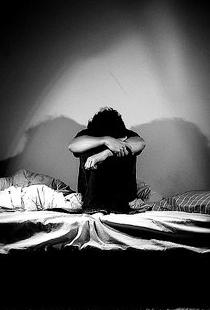Psychiatry and Game Theory
Some theorists propose that the concept of “mental illness” as we know it is a false paradigm. One may view society as individuals playing within a collective game. Each of individual is trying to maximize their potential and gain with minimal effort or suffering. Some individuals understand and play the rules of the game better than others. Problems therefore arise.
"The struggle for definition is veritably the struggle for life itself. In the typical Western two men fight desperately for the possession of a gun that has been thrown to the ground: whoever reaches the weapon first shoots and lives; his adversary is shot and dies. In ordinary life, the struggle is not for guns but for words; whoever first defines the situation is the victor; his adversary, the victim. For example, in the family, husband and wife, mother and child do not get along; who defines whom as troublesome or mentally sick?...[the one] who first seizes the word imposes reality on the other; [the one] who defines thus dominates and lives; and [the one] who is defined is subjugated and may be killed."…Szasz
Mental health disorders are medical metaphors describing incidents when the individual’s desires or behaviors are in conflict with society or nature. Problems of living such as depression, anxiety, and even psychosis exist to be sure. However, it is false to liken them to traditional medical diseases that should be “treated” by a medical doctor. Psychiatrists are similar to “soul doctors”, the successors of priests or shamans, who deal with the spiritual “problems in living” that have troubled people forever.
While people behave and think in ways that are very disturbing, this does not mean they have a disease. Society’s definition of mental illness sometimes seems like a matter of semantics. Thomas Szasz, one of the leading psychiatrists of this view, wrote: "If you talk to God, you are praying; If God talks to you, you have schizophrenia. If the dead talk to you, you are a spiritualist; If you talk to the dead, you are a schizophrenic."
Through various Mental Health Acts or laws, psychiatry has slowly become a social control system, which disguises itself under the claims of scientificity.
It should be noted that Szasz’s views have been rejected by the American Psychiatric Association (APA) and the psychiatric establishment. His views are often inappropriately lumped in with less astute psychiatry deniers such as the Scientologists. While I disagree with much of his views, there is something compelling about them especially for any psychiatrist who has ever worked in military, forensic or disability evaluations. Dr. Lacy
Min Åsikt/ Vi mår sämre trots att vi har det bättre…
Vi har det bättre ställt materiellt, ekonomiskt och tekniskt än någonsin tidigare men det verkar som att människor mår allt sämre i själen. Alla de nya kommunikationsmedlen och all “ny” underhållning har varken gjort oss gladare eller lyckligare. Eller? Knepigaste av allt är att inte ens alla tidsbesparande maskiner har lyckats ta bort tidspress och stress, utan snarare tvärtom. Vi är mer stressade an någonsin och psykisk ohälsa är idag det näst största folkhälsoproblemet efter hjärt- och kärlsjukdomar. Alltfler upplever depression, ångest, oro och ängslan, och värst är det bland unga, där är ökningen som allra störst. Jag undrar om detta beror på att det inte finns tillräckligt med information om psykisk ohälsa 50 - 100 år tillbaka eller om vi faktiskt är olyckligare idag.

Man kan ju undra varför det ökade välståndet inte har lett till ett ökat välbefinnande.
Jag har mina egna funderingar över detta: I dagens samhälle har vi ökad valfrihet i jämförelse med hur det var för några sekler sedan, när man föddes in i ett yrke, en familj, en umgängeskrets och en ekonomisk klass. Idag har vi möjlighet att välja våra egna liv precis som vi själva vill, vilket gör att människor får ångest, oro och stress. Pressen blir hög på en att välja rätt och trampa upp rätt stig i livet.
Den ökade valfriheten leder till att man själv alltid blir utbytbar, vilket ger en stor känsla av vanmakt. Äktenskapspartners, vänner och anställda går alltid att byta ut, eftersom alternativen är oändliga och ingen är oersättlig.
Min åsikt ar att vi lever i ett samhälle där skillnaden mellan den falska förväntan som finns och verkligheten är stor vilket gör att många upplever besvikelse, depression och hopplöshet. Men vad kan vi göra at det? Jag tror att det är viktigt att vi saktar ner tempot för att hitta en meningsfull tillvaro och anpassa våra liv så att vänner, familj och relationer får en större plats.Vad tror ni?
Hoppas ni alla har en bra dag!
/Charlotte
What is the cause of psychiatric conditions such as depression, bipolar and schizophrenia?
The large majority of today's psychiatrists would answer the above question by describing the "Bio-psycho-social" model. This has been the mainstay of psychiatric education for the last 20 or so years. It is basically the view that psychiatric disorders have multifactorial causes generally falling into three domains: biologic, psychological, and social. For any specific individual there may be differing levels of importance placed on any of these domains. The "bio-psycho-social" model does not work so well when studying large samples of patients but this way of thinking about mental illness works fairly well to determine the etiology of a particular individual's psychiatric problem.
For example, a 19 year old male patient who recently left home to enter college presents with 3 months of depression including symptoms of difficulty with concentration, decreased interests, decreased energy and decreased appetite. The patient states that he grew up in a divorced family and was raised by his father from the age of 11. He states that he also recently has had a break up with his girlfriend with whom he has dated for the last 3 years. The patient thinks that she must have met someone new around the time he left for college. He feels a sense of rejection and low self esteem. He reports a distant relationship with his mother who he describes as "too busy dealing with her own problems". The patient's mother has a psychiatric history of anxiety and depression. In addition to the above, the patient is worried about his worsening grades in school and whether his father will continue to help financially to finish out the school year.
Biological: family history of depression/anxiety, late adolescent age, drug use?, medical causes of depression?
Psychological: How does this person deal with a break up? Was he really rejected or is this just his perception? Does moving away from home and loss of a girlfriend unconsciously bring back prior losses. Maybe there is an increased sense of rejection because he blamed himself for his mom leaving. "I was just another of my mom's problems"
Social: What is his college like? Are people generally friendly or is it a difficult place to meet people? Does he have a roommate to talk with? Why does dad pressure him financially about grades? Would dad continue this negative pressure if he knew his son were depressed? Is the school too academically difficult? Would it be easier to go to a smaller school closer to home? what other environmental stressors are present? What if this patient suddenly won 5 million kronor and met a beautiful swedish girl; would his depressive symptoms suddenly disappear?
Now, you know the bio-psycho-social approach to understanding mental illness. There are many other theories or models out there (some of them pretty wack-o) to explain mental illness. This is currently the most broadly accepted. I hope to present some others throughout the coming week.
Veckans ämne: Källan till psykisk ohälsa såsom depression, schizofreni och bipolär
Varje vecka kommer vi att diskutera och informera om ett nytt område inom psykisk ohälsa. Vi kommer att svara på frågor som rör ämnet men om ni har andra frågor kommer vi att svara på dom i ett separat inlägg. Den här veckan kommer vi att fokusera på ett väldigt brett ämne, “orsaken” till psykisk ohälsa. Vi hoppas på frågor och feedback från er. Om du har en ide till ett ämne, lämna gärna en kommentar och vi kommer göra vårt bästa för att informera om det som ni läsare tycker är intressant.
Psykisk ohälsa är som sagt ett brett begrepp som innefattar allt från psykisk sjukdom, allvarlig psykisk störning till att uppleva psykiska besvär som mer eller mindre stör det psykiska välbefinnandet och som påverkar ens dagliga liv. Många av oss lever med kronisk psykisk ohälsa men fa söker professionell vård.

Det finns många orsaker till psykisk ohälsa. Vi är olika sårbara för de påfrestningar och upplevelser vi möter under livet. Den individuella sårbarheten är till viss del genetiskt betingad. Man kan till exempel ärva dispositionen för att utveckla en depression men det är inte säkert att en depression bryter ut. Det hänger bland annat samman med vilka yttre villkor som gäller i ens liv.
Stor arbetsbörda med för lite egen kontroll kan innebära att den psykiska hälsan påverkas. Det är också negativt att ha för lite att göra och att inte känna sig uppskattad samt uppleva en bristande balans mellan prestation och belöning.
Svaret till vår fråga den här veckan är inget enkelt svar, utan man är tvungen att söka sig till flera olika förklaringar och tänkbara anledningar. Vi kommer att titta på några under veckans gång. Hoppas att ni alla har haft en fin helg!


